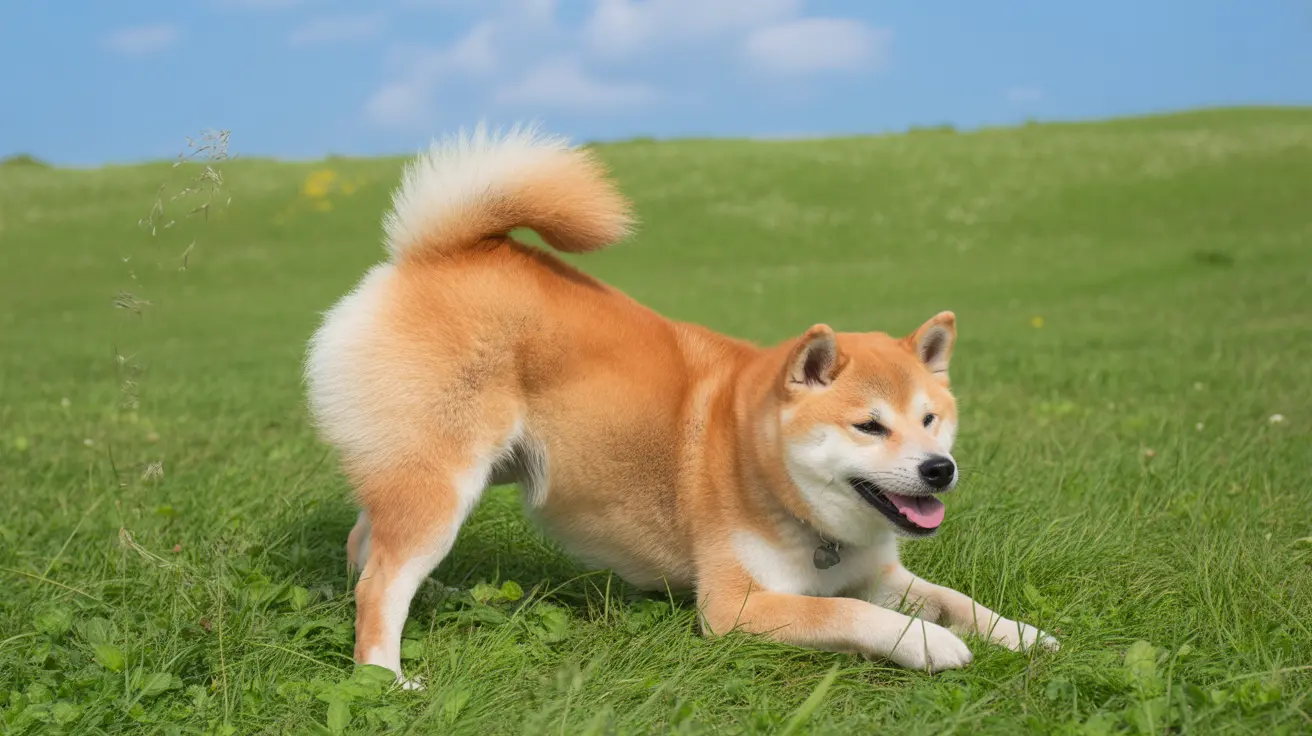If you've ever watched your dog enthusiastically rubbing their face on the ground, you might have wondered about this peculiar behavior. From natural instincts to potential health concerns, there are several reasons why dogs engage in face-rubbing behavior. Understanding these motivations can help you determine whether it's a harmless habit or a sign that requires veterinary attention.
In this comprehensive guide, we'll explore the various reasons behind this common canine behavior and help you identify when it might be cause for concern.
Natural Instincts and Communication
Dogs often rub their faces on the ground as part of their natural instinctual behaviors. This action serves multiple purposes in their communication arsenal:
Scent Marking
Dogs have special scent glands in their faces that they use to mark territory and communicate with other dogs. When they rub their face on the ground, they're either leaving their scent behind or picking up interesting scents from their environment.
Post-Bath Behavior
After bathing, dogs frequently rub their faces on the ground to remove unfamiliar shampoo smells and restore their natural scent. This behavior helps them feel more comfortable and "normal" after being cleaned.
Medical and Physical Causes
Allergies and Skin Irritation
Environmental or food allergies can cause intense itching, leading dogs to rub their faces for relief. Common triggers include:
- Pollen
- Dust
- Grass
- Food sensitivities
- Chemical irritants
Dental and Oral Issues
Dogs experiencing dental pain or oral discomfort might rub their faces on the ground to find relief. Watch for additional signs like:
- Bad breath
- Difficulty eating
- Drooling
- Swelling around the face
Eye and Ear Problems
Face rubbing can indicate problems with the eyes or ears, such as:
- Ear infections
- Eye irritation
- Foreign objects
- Excessive ear wax
- Conjunctivitis
When to Be Concerned
While occasional face rubbing is normal, certain signs warrant veterinary attention:
- Excessive or persistent rubbing
- Blood or discharge
- Visible irritation or swelling
- Changes in behavior
- Loss of appetite
- One-sided rubbing
Prevention and Solutions
To minimize problematic face rubbing, consider these steps:
- Regular grooming and face cleaning
- Proper collar fitting
- Seasonal allergy management
- Regular veterinary check-ups
- Maintaining good dental hygiene
Frequently Asked Questions
Why does my dog rub her face on the ground after a bath or meal?
Dogs rub their faces after baths to remove unfamiliar scents and restore their natural odor. After meals, they may do this to clean their faces or as a learned behavior. Both are typically normal behaviors unless excessive.
Could my dog rubbing her face on the ground be a sign of allergies or skin irritation?
Yes, frequent face rubbing can indicate allergies or skin irritation. If accompanied by redness, swelling, or excessive scratching, consult your veterinarian for proper diagnosis and treatment.
How can I tell if my dog's face rubbing is due to an ear or dental problem?
Look for additional symptoms like head tilting, bad breath, or favoring one side when eating. These signs, combined with face rubbing, may indicate ear infections or dental issues requiring veterinary care.
Is face rubbing a way for dogs to mark their territory or communicate?
Yes, dogs have scent glands in their faces that they use to mark territory and communicate with other dogs. This behavior is a normal part of their social interaction and environmental exploration.
When should I see a vet if my dog keeps rubbing her face on the ground excessively?
Seek veterinary care if the behavior becomes frequent, intense, or is accompanied by signs of distress, visible irritation, discharge, or changes in eating habits. Early intervention can prevent more serious complications.
Conclusion
Face rubbing in dogs can range from normal communication and grooming behavior to a sign of underlying health issues. By understanding the context and associated symptoms, you can better determine whether your dog's face-rubbing behavior requires professional attention. When in doubt, always consult with your veterinarian to ensure your pet's comfort and well-being.






